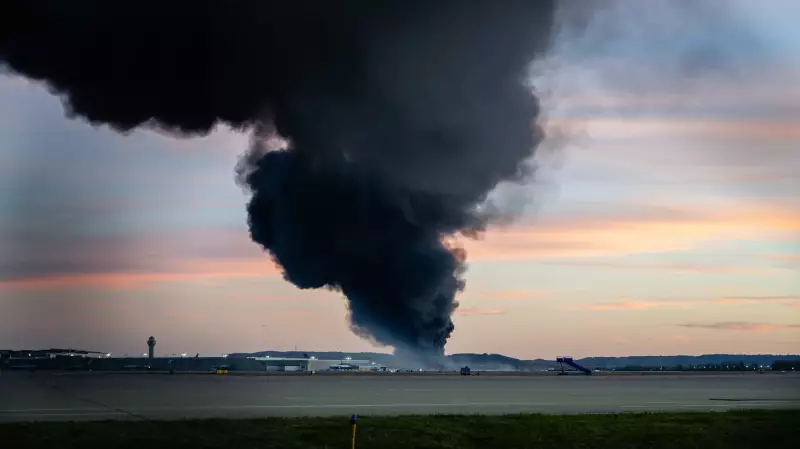
In a startling revelation that has sent shockwaves through the aviation industry, federal investigators have confirmed that one of the engines completely detached from a UPS cargo plane moments before it crashed and exploded in a fiery Kentucky inferno.
The Terrifying Sequence of Events
The National Transportation Safety Board's preliminary report paints a chilling picture of the final moments of UPS Flight 1354. According to the investigation, the Boeing 747-400 experienced a catastrophic engine separation just before plunging into a hillside near Birmingham-Shuttlesworth Airport on August 14, 2014.
The crew reported an unspecified emergency and was attempting to return to the airport when the unthinkable occurred. Witnesses on the ground reported seeing the massive aircraft flying unusually low before the devastating impact that claimed both pilots' lives.
Investigation Uncovers Critical Evidence
NTSB investigators combing through the wreckage made a crucial discovery: evidence clearly indicating that the number three engine had separated from the aircraft wing before ground impact. This finding fundamentally changes the understanding of what caused the fatal crash.
"The engine separation appears to have been a initiating event in the accident sequence," aviation safety experts suggest, highlighting the seriousness of this mechanical failure.
Safety Implications for Global Aviation
The incident raises urgent questions about aircraft maintenance protocols and engine mounting systems. The Boeing 747-400, while aging, has generally maintained an excellent safety record throughout its operational history.
Key concerns emerging from the investigation include:
- Engine mounting and pylon integrity
- Maintenance history of the specific aircraft
- Pilot response time to catastrophic failure
- Cargo aircraft safety standards
As the NTSB continues its thorough investigation, the aviation community watches closely, knowing that the findings could lead to important safety enhancements for cargo operations worldwide.





